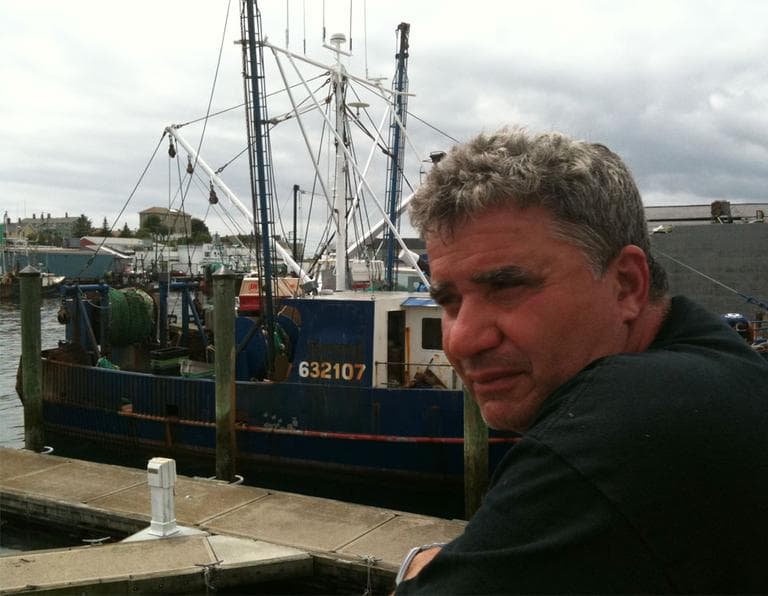Advertisement
Reports: Area Fishermen Are Feeling The Squeeze

The total earnings of Massachusetts fishermen fell an estimated 14 percent last year, a review from The Boston Herald has calculated.
With its analysis — which does not include a per capita earnings estimate — the Herald found that "[s]ome fishermen blame their floundering fortunes on a 'catch-share' system the government put in place in May 2010 to protect groundfish such as cod."
In August, WBUR paid a visit to Gloucester, where we found fishermen resigned to the quota system and trying to adapt to the new business practices. And we found the catch share system leading to some consolidation of smaller, independent fishing operations.
Speaking to the Herald for its report today, a National Oceanic and Atmospheric Administration spokeswoman "acknowledged 'some smaller vessels have definitely had a harder time' under the new program. But she said government efforts to revive fish stocks meant quotas would have fallen even under the old system."
Her comments follow what NOAA's regional administrator predicted to us last year:
Over time, we will see this equalization between what the resource can support and the number of vessels out there, and we’ll see much healthier fishing vessels out there. A healthier resource is going to lead to healthier fishing businesses and healthier fishing communities. So, we’re still in a transition, but that will be the end result of this.
But the Herald analysis is not the only development rankling some area fishermen.
As The New York Times reported this weekend, the supermarket Whole Foods has decided "to stop selling seafood it does not consider sustainable," including several regional fish, like skate and trawler-caught cod.
Whole Foods cited overfishing and depleted stocks for its decision, but, as the Times reported:
Although the new policy will affect fishermen nationwide, the reaction from Gloucester and other New England ports may be the unhappiest. New England has more overfished stocks than any other region, according to federal monitors. ...
The supermarket's decision prompted Sen. Scott Brown yesterday to ask Whole Foods to reconsider. Brown said the decision had more to do with political correctness than reason.
In a letter to Brown, Whole Foods responded by saying that it's committed to the region's fishing economy, "has found enough Massachusetts fishermen to meet the company's needs for responsibly-caught seafood," and, as far as it knows, "the handful of boats from which we no longer buy due to the red rating of their seafood catches have found contracts with other processers [sic]."
Related: There's a "New England Sustainable Seafood Teach-In" this weekend, sponsored in part by Whole Foods. See Public Radio Kitchen for a recap. (Update: PRK recap is here.)
Update at 2:45 p.m.: There was also this story Friday in the Gloucester Times: "Porpoise deaths bringing fishing grounds shutdown."
This program aired on April 24, 2012. The audio for this program is not available.
